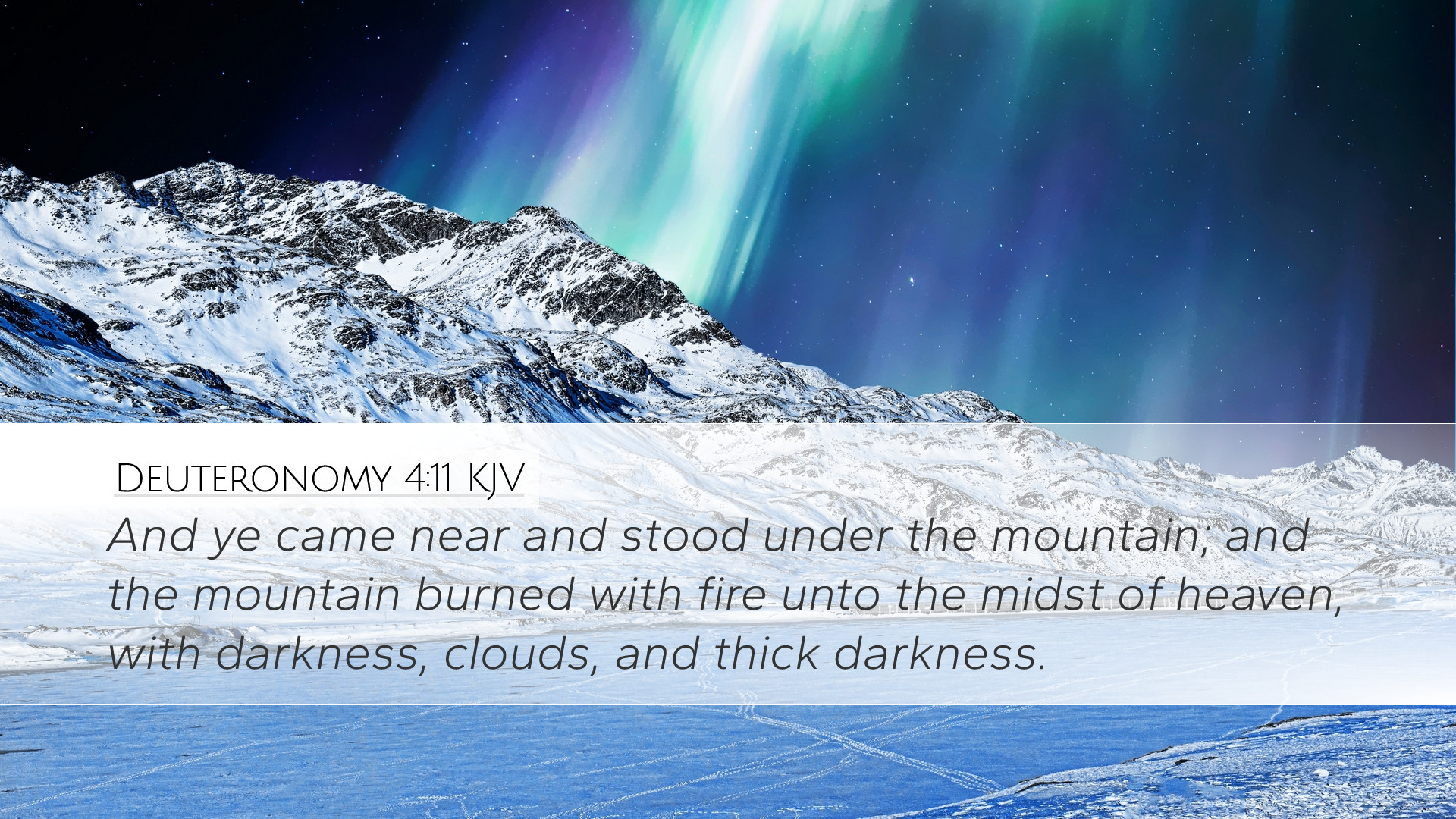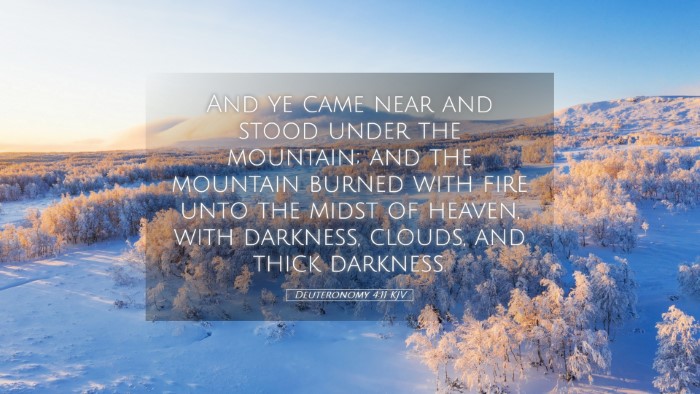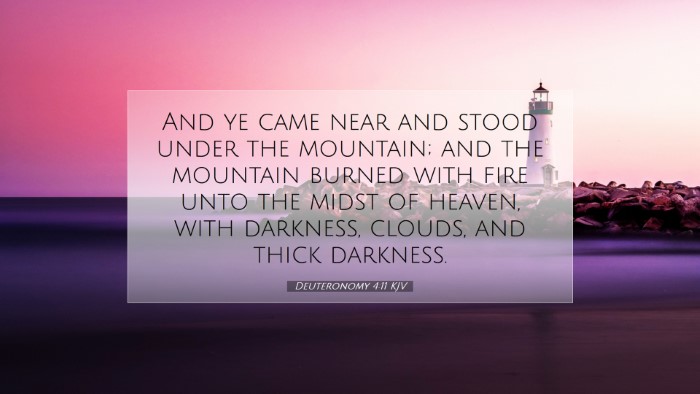Commentary on Deuteronomy 4:11
Verse: "And you came near and stood at the foot of the mountain; and the mountain burned with fire to the heart of heaven, with darkness, clouds, and thick darkness." (Deuteronomy 4:11)
Contextual Overview
The Book of Deuteronomy, meaning 'Second Law', serves as a recap and reinforcement of the laws given to the Israelites. Here, Moses addresses the people in the plains of Moab, preparing them to enter the Promised Land. Chapter 4 centers on the importance of adherence to God’s commandments and the consequences of turning away from them.
Exegesis of the Verse
This verse describes a pivotal moment in the covenant relationship between God and the Israelites. It refers to the Sinai experience where the people witnessed the overwhelming presence of God.
- Standing at the Foot of the Mountain: The Israelites were literally positioned at the base of Mount Sinai, signifying their readiness to hear God’s law. This physical proximity also represented their spiritual posture of submission and expectation to receive divine guidance.
- The Mountain's Burning: The imagery of fire ascending to the heart of heaven indicates not just the holiness of God but also His unapproachable majesty (see Hebrews 12:29). The fire symbolizes God’s purification and presence.
- Darkness and Clouds: The thick darkness reinforces the idea of mystery and the transcendent nature of God. It illustrates that God, while being approachable in His covenant, retains an element of holiness that sets Him apart from humanity.
Theological Implications
Several theological themes can be derived from this verse:
- The Holiness of God: God's display of power through fire and darkness serves to underscore the need for humans to approach Him with reverence. As described by Matthew Henry, this divine encounter inspires a healthy fear of God.
- The Importance of Obedience: Moses emphasizes that understanding the nature of God and His laws is crucial for the survival and prosperity of Israel in the Promised Land. Albert Barnes notes that obedience to divine law results in blessings while disobedience incurs judgment.
- Revelation and Relationship: God chooses to reveal Himself in a way that communicates both intimacy and awe. Adam Clarke reflects on the implications of this revelation for our understanding of God's approachability contrasted by His omnipotence.
Commentary Insights
Closing insights from notable commentators provide added depth to the study of Deuteronomy 4:11.
- Matthew Henry: He emphasizes the significance of the mountains, often representing lofty ideas and moral elevation. This mountain's fiery display was meant to instill a deep sense of reverence among the people.
- Albert Barnes: Barnes elaborates on the gravity of the scene, showcasing it as a paradigm of divine revelation where God showcases both His imminence and transcendence. He notes that the experience serves as a reminder of the importance of holiness in our worship.
- Adam Clarke: Clarke provides insights into the metaphoric meaning of darkness and fire, stating that they illustrate the dual aspects of divine judgment and grace. The elements remind us of our human limitations before God’s eternal sovereignty.
Practical Applications
This verse holds profound implications for contemporary believers, particularly for pastors, students, and scholars who seek to live out their faith authentically:
- Reverence in Worship: Understanding the weight of God’s presence should inspire a deep respect and humility in worship. Approaching God should be done thoughtfully, recognizing His holiness.
- Commitment to Obedience: The narrative instructs believers today on the importance of adhering to God’s commandments, which are meant for their spiritual benefit and community wellbeing.
- Awareness of God’s Presence: Just as the Israelites stood in awe at the mountain, so must believers remain conscious of God’s omnipresence and involvement in their lives.
Conclusion
Deuteronomy 4:11 offers a dense insight into the character of God, the nature of revelation, and the human response expected by the Creator. By reflecting on the commentary from historical theological figures, believers today can glean wisdom from this ancient text and apply it in their spiritual journeys.


